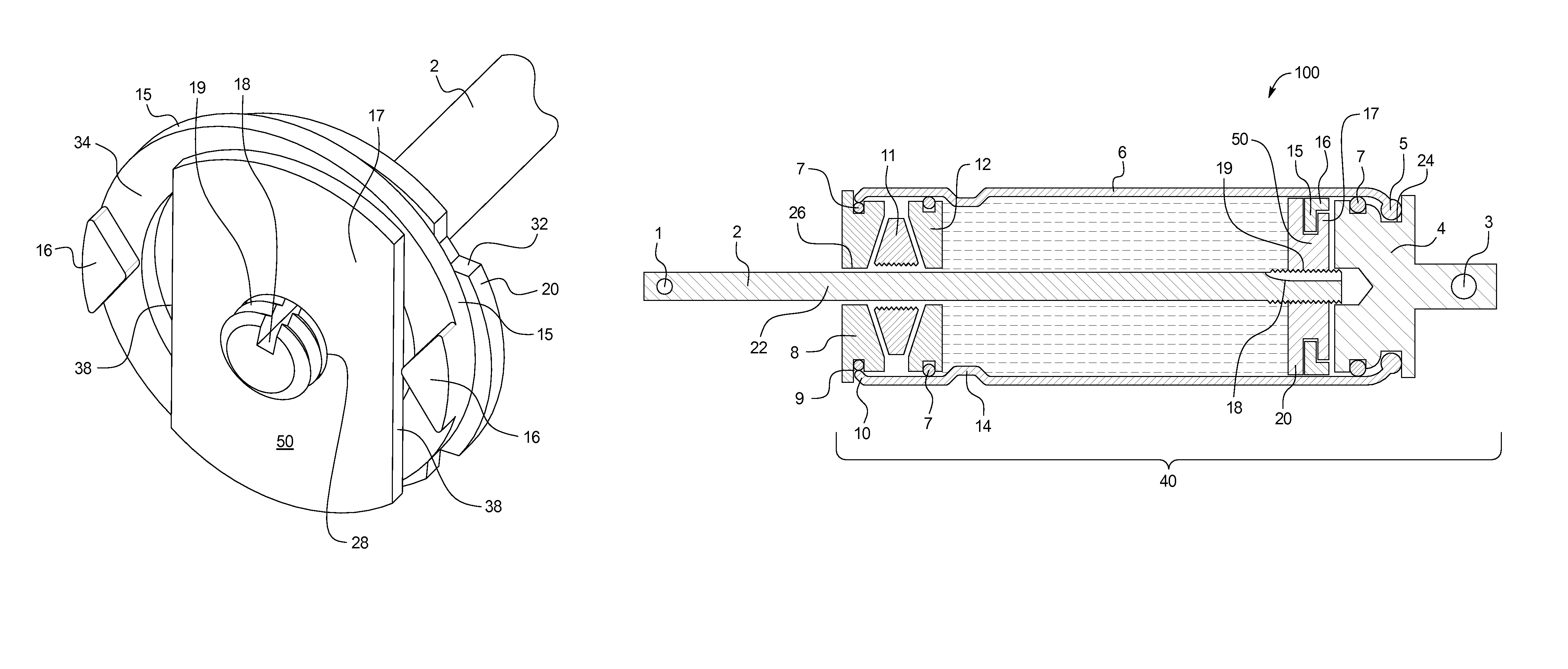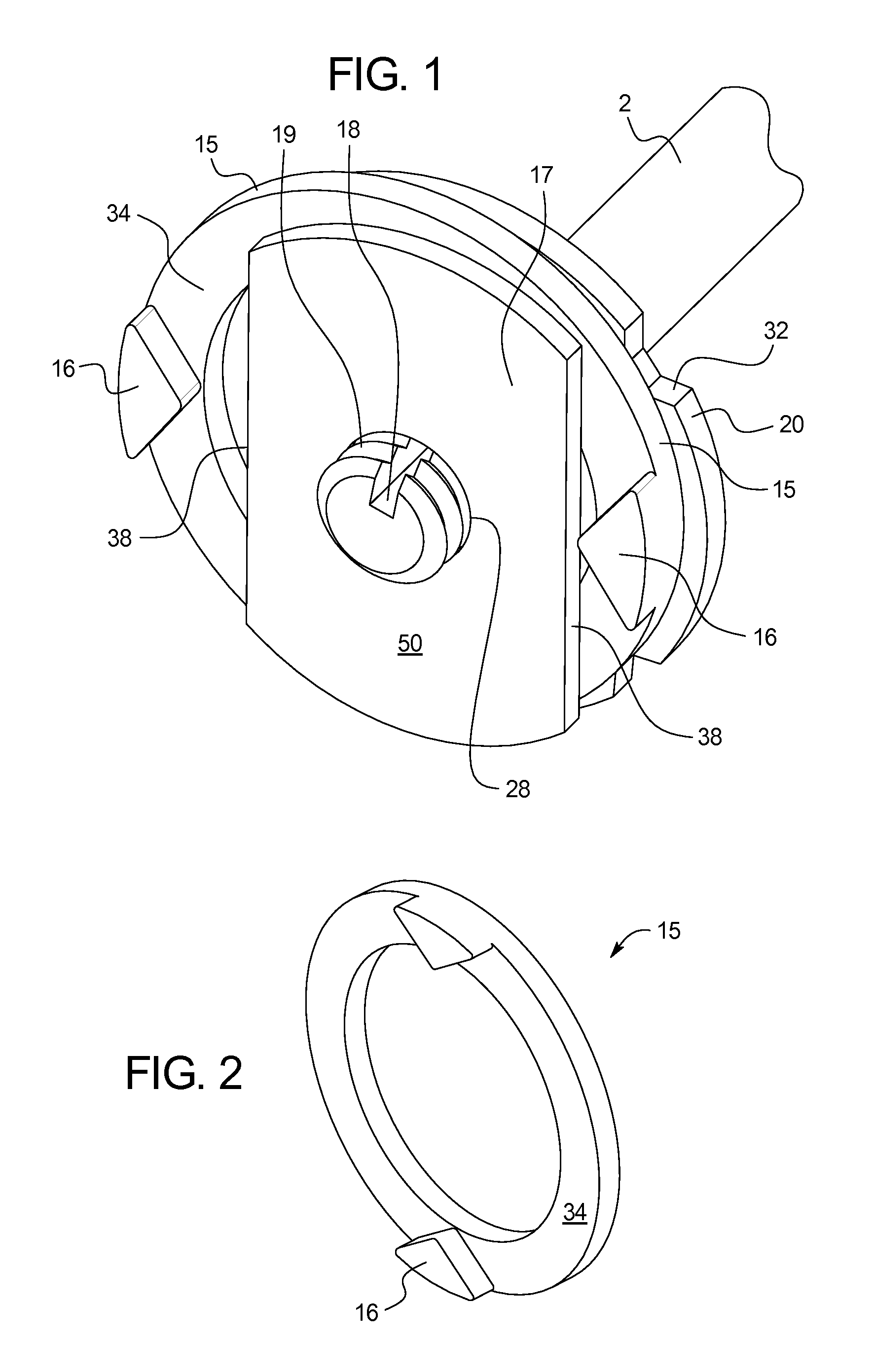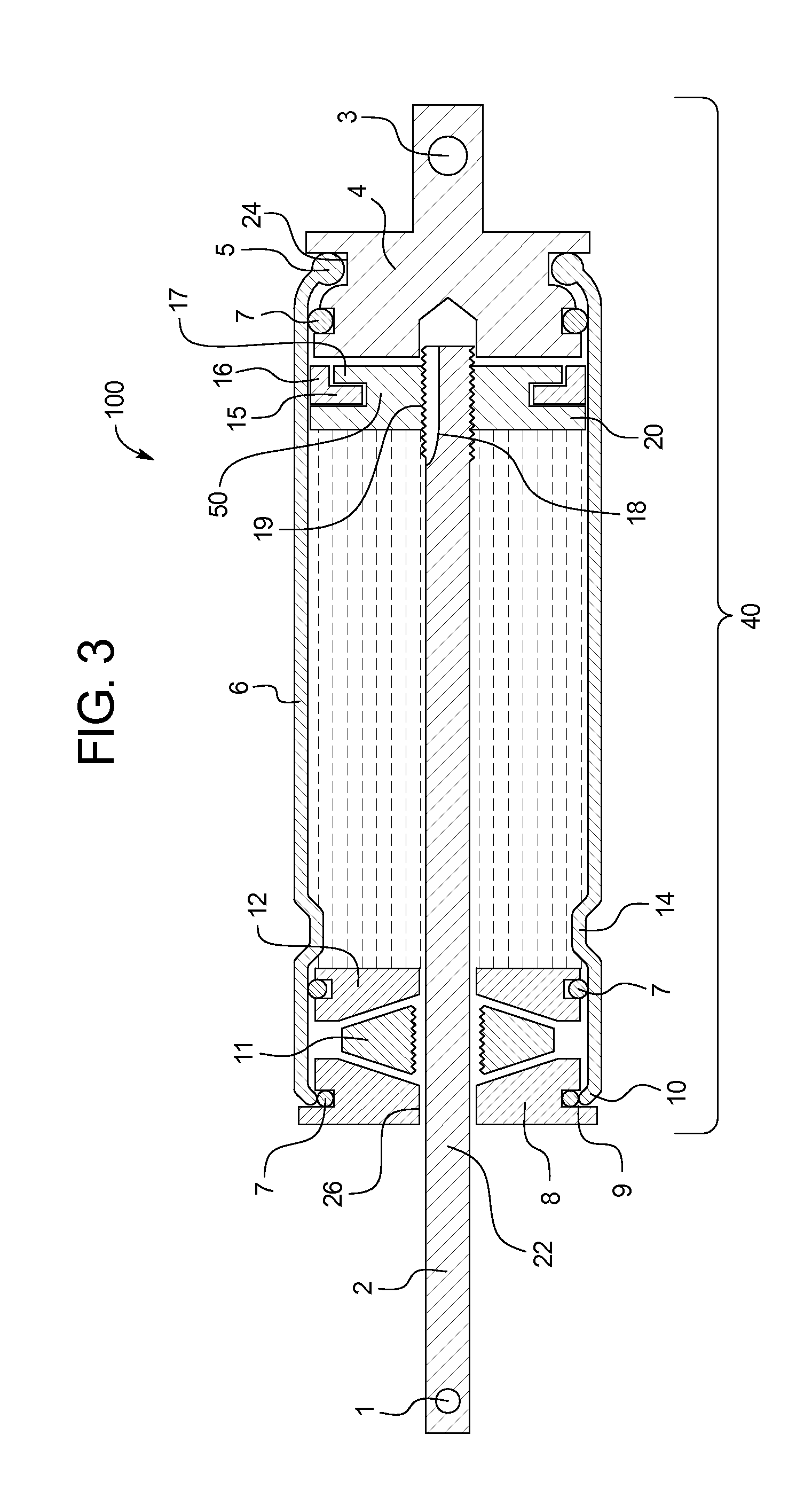Hydraulic dampener systems
a technology of hydraulic dampener and dampener, which is applied in the direction of vibration dampers, shock absorbers, liquid based dampers, etc., can solve the problems of increasing dampening, and achieve the effects of increasing dampening, improving hydraulic dampener systems, and reducing dampening
- Summary
- Abstract
- Description
- Claims
- Application Information
AI Technical Summary
Benefits of technology
Problems solved by technology
Method used
Image
Examples
Embodiment Construction
[0037]The present disclosure provides hydraulic dampener systems 100 including a piston 50, a washer 15, and a shaft 2, as shown in FIG. 1. The piston 50 includes a threaded central opening 28 that is configured to engage a threaded surface of the shaft 2. In an example, the threaded surface of the shaft 2 and the threaded central opening 28 of the piston 50 define a class 5 interference fit. The piston 50 may be made of any suitable material including, but not limited to, metal, plastic, resin, among others. For example, the piston 50 may be made of fiberglass reinforced nylon, such as, Zytel®.
[0038]The piston 50 includes a piston front disk 17 and a piston back disk 20. As shown in FIG. 1, a measurement taken across the face of the piston front disk 17 and extending through the threaded central opening 28 is smaller than a diameter of the piston back disk 20. In an example, the reduced size is achieved because the piston front disk 17 includes two flat sections 38 along its perime...
PUM
 Login to View More
Login to View More Abstract
Description
Claims
Application Information
 Login to View More
Login to View More - R&D
- Intellectual Property
- Life Sciences
- Materials
- Tech Scout
- Unparalleled Data Quality
- Higher Quality Content
- 60% Fewer Hallucinations
Browse by: Latest US Patents, China's latest patents, Technical Efficacy Thesaurus, Application Domain, Technology Topic, Popular Technical Reports.
© 2025 PatSnap. All rights reserved.Legal|Privacy policy|Modern Slavery Act Transparency Statement|Sitemap|About US| Contact US: help@patsnap.com



